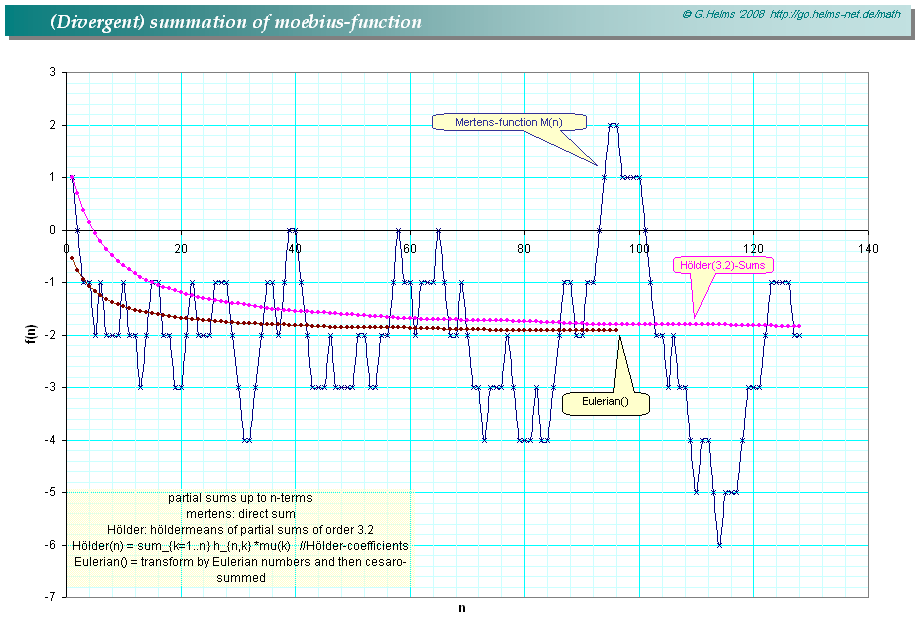Just reading about the Mertens-function in the other thread Mertens function I remember an earlier attempt to apply divergent summation to the series which is constructed of the Moebius-function at consecutive arguments, or in other words of which the Mertens-function-values represent the partial sums.
Eulersummation, although relatively poorly adapted, suggested that the (divergent) sum should be meaningfully evaluated to -2. But that sequence of partial sums (although seldom exceeding only the squareroot of its current index) seems to be a specific difficult case for such common summation methods - the approximation is relatively poor even for 128 terms. I tried Nörlund-means/Cesaro-sum, Euler-sums of different orders and also a selfmade matrix summation-method using the eulerian numbers (with which I could -on the other hand- well handle the even strongly diverging $ 0!-1!+2!-3!+...$ -series), but I tried not yet for instance Abel and Borel.
Q1: What method would be most appropriate to sum the series $ S = \sum _{k=1}^{\inf} moebius(k) $
Evaluation of 128 terms (Euler,Cesaro) suggested the result $S = -2$
Q2: And how could it be determined whether the Cesaro- and/or Euler-summation are at all capable to evaluate that series to a final value?
Here is  of the summation.
of the summation.
